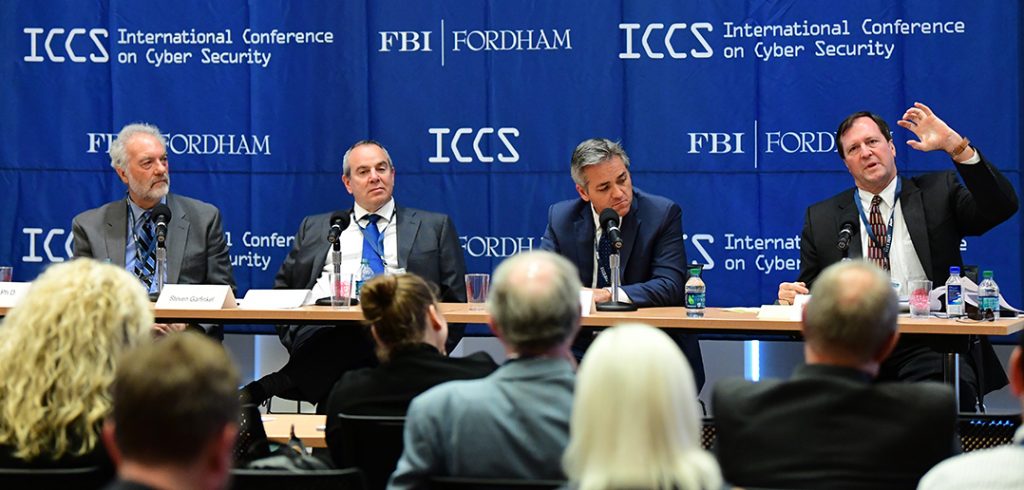In a panel titled, “Insider Risks: Investigative Insights and Lessons Learned,” Eric Shaw, Ph.D., and Kirk Kennedy, Ph.D., a behavioural psychologist at FBI, advised listeners how to identify red flags so that they could help a troubled employee before they become a criminal employee.
Both Shaw and Kennedy spent years using data to examine behaviors that led to white-collar crime. Kennedy said that there are personal predispositions that espouse concerning behaviors, and he referred to the four characteristics that make a white-collar criminal or someone who commits espionage the “dark tetrad.” The characteristics are narcissism, Machiavellianism, psychopathy, and sadism.
“When you have severe and prolonged emphasis in at least two of these four areas, you can bet you’re going to have somebody who is going to develop some significant problems,” said Kennedy.
Beyond being self-centered, narcissists believe they deserve special treatment and they don’t deserve criticism, he said. Machiavellians believe the ends justify the means, even if that means they coldly use others. They also use charm to mask their calculated efforts.
“People with these characteristics view people as instruments to use in their goals; they’re duplicitous,” he said.
Psychopaths violate rules and others’ rights and are callous of others feelings, but add “a heavy smattering of superficial charm.” Sadists, on the other hand, take pleasure in causing others emotional pain.
“We look at this as a witch’s brew of characteristics,” he said, noting that any combination of two of the characteristics spells trouble for an institution. However, one characteristic alone may actually be a good thing for a company. He noted that narcissists quite often make good leaders.
“I think psychopaths get a bad name,” said Shaw to much laughter.
He noted that sometimes a leader needs to be dispassionate and distant when they have to cut losses, cut jobs, and make harsh judgment calls.
Panelist Steve Garfinkel, senior vice president and senior program manager of Global Investigations at Citibank, said that many of the suspects he’s caught over the years exhibit a Machiavellian amiability.
“Many of the more successful fraudsters are very likeable, and that allows them to get other people they work with to do things for them and help them in their fraud,” said Garfinkel. “Those people are some of the more dangerous people as a risk to an institution.”
Peter Lapp, a special agent with the FBI, said he found the narcissism he’s observed among those engaged in espionage to be “unbelievable.” He cited the case of Ana Montes, who rose through the ranks at the Defense Intelligence Agency, all while relaying classified information to the Cuban government. He noted that her willingness to share that information usurped an authority that was well above her station.
Nevertheless, Montes rose through the ranks as a recognized expert on Latin American affairs. She was so trusted, agents embarking on dangerous assignments in the region would contact her before heading out on a mission. This was the case with one Green Beret who was eventually ambushed in the jungles of El Salvador and killed. Lapp was convinced that Montes had met him before, but when he interviewed her after the death, she dismissed it.
“Her response was, ‘I don’t remember meeting him. I don’t remember the name. However, if I knew who he was, I knew what he was doing, and I knew what his mission was, I would have told the Cubans. And if he died as a result of my espionage, that’s the risk that he wanted to take,’” he recalled her saying. “That’s some cold, cold stuff there. That’s narcissism.”

